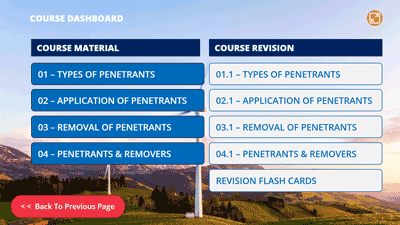The Covid-19 lockdown has propelled online learning firmly into the mainstream. Chris Kirby, general manager of IMechE Argyll Ruane, explains the principles and benefits.

Online learning was widely used before the Covid-19 pandemic took hold. However, the advent of lockdown restrictions have firmly established it as an essential delivery method for both mainstream education and industry-specific training.
Online learning takes many forms and there are many overlapping terms. It is a form of distance learning and can be broadly defined as education that takes place remotely over the internet. E-learning is any learning process that is supported by technology: this could be downloaded software or delivery via the internet, so online learning is a type of e-learning. Students may choose to study on a variety of devices, with tablets, mobile phones and even wearable devices becoming increasingly popular, so the term mobile learning is also used.
Blended learning combines online learning with face-to-face classroom training. It is also known as hybrid learning. Where learning is simply described as online, this implies that at least 80% of the material in a course will be delivered over the internet, but this is a loose definition.

A principal benefit of online learning is that it enables students to study at any time of day. It is therefore highly appropriate for adult education, where it gives essential flexibility to both student and employer. An additional advantage is reduced travel and accommodation expenses. Learning management system platforms give employers the ability to track employees’ progress. The greatest benefit, however, is that online learning enables students to acquire knowledge at their own pace and to retain it for longer.
Online learning can offer a highly interactive experience that promotes active engagement with the learning material, as opposed to attending a predominantly passive classroom lecture. Students can repeat material over and over at their own pace, wherever they are, until they feel confident with the material. These factors increase both depth of understanding and knowledge retention compared with lecture-style classroom training.
Online learning also encourages the use of microlearning techniques. Microlearning breaks topics into small chunks, or units, that take advantage of the brain’s ability to absorb short, easily consumable segments, rather than being overloaded with large volumes of new information. Examples of microlearning include BBC Bitesize and the Duolingo language learning apps. Microlearning units, which are frequently under five minutes long, aim to provide just the necessary amount of information to enable students to achieve a goal.
Using mixed media, such as text, animation, videos and voiceovers, helps to retain students’ attention. “Gamification” offers further engagement by exploiting people’s natural competitive spirit and desire to master a challenge.
Giving rewards or showing a progress bar further encourages students. Enabling discussion with a tutor and their peers allows students to socialise and share their learning experience, and further assists understanding and knowledge retention.
Training in non-destructive testing and corrosion prevention often requires a student to learn complex technical theory, retain specific details regarding industry practices, regulations and norms and learn essential practical skills. This type of training is frequently conducted under a certification scheme, such as the British Institute of Non-Destructive Testing PCN (personnel certification in non-destructive testing), or Institute of Corrosion ICorr schemes. Both these institutes now recognise that online or blended learning is an appropriate method for delivery of certified training. Leading training schools are now offering online learning courses where the practical training aspects are conducted at the training centre and theoretical aspects are delivered online. It is predicted that the number of students preferring to take online training courses will increase significantly over the coming years.
In the future, practical training may also be conducted remotely. Many industries, such as the aerospace sector, have shown how the use of extended reality techniques such as virtual reality, augmented reality and mixed reality, along with advanced software models and haptic feedback hardware, are able to create realistic virtual environments for hands-on training. It seems likely that this will be utilised more broadly for a range of industry-specific training, including NDT and corrosion prevention.
IMechE Argyll Ruane is a training partner for the BINDT and ICorr certification schemes
Argyllruane.imeche.org | Argyllruane@imeche.org
Tel: +44 (0)114 399 5720

